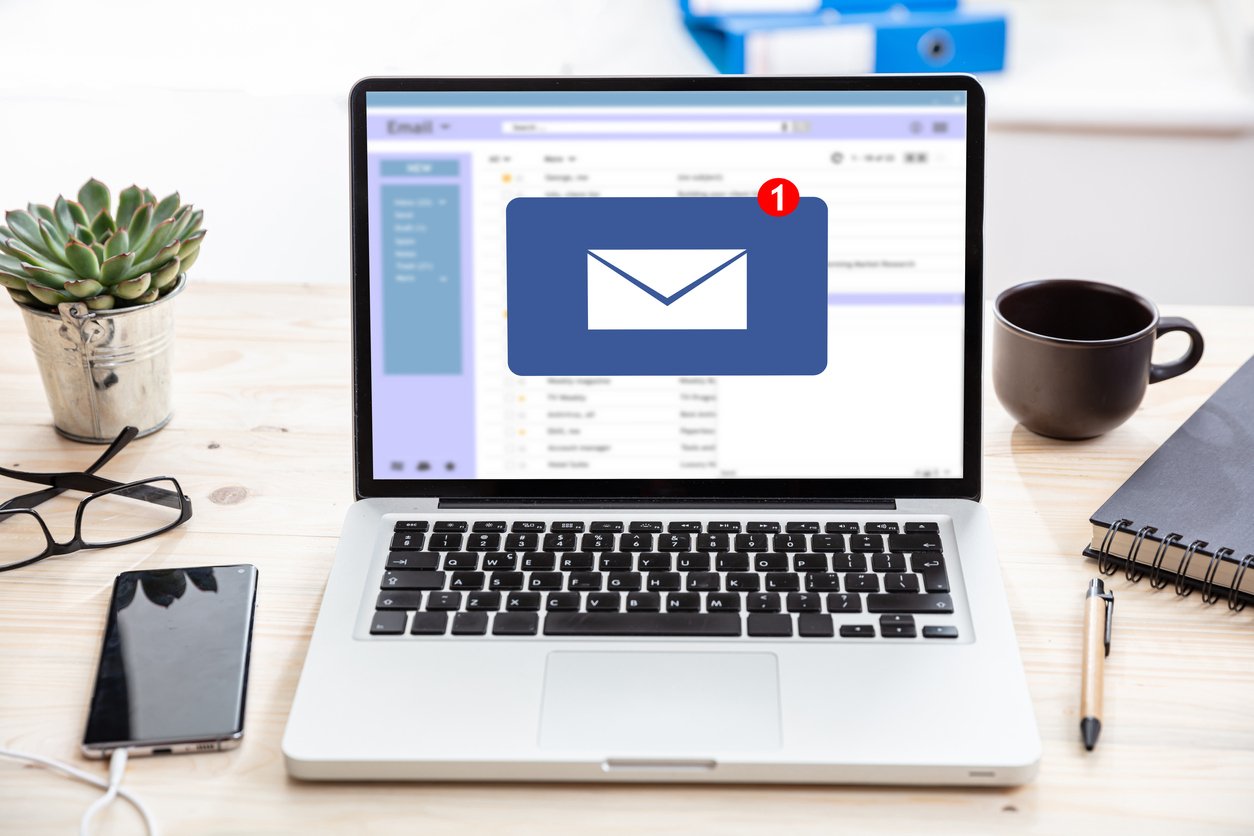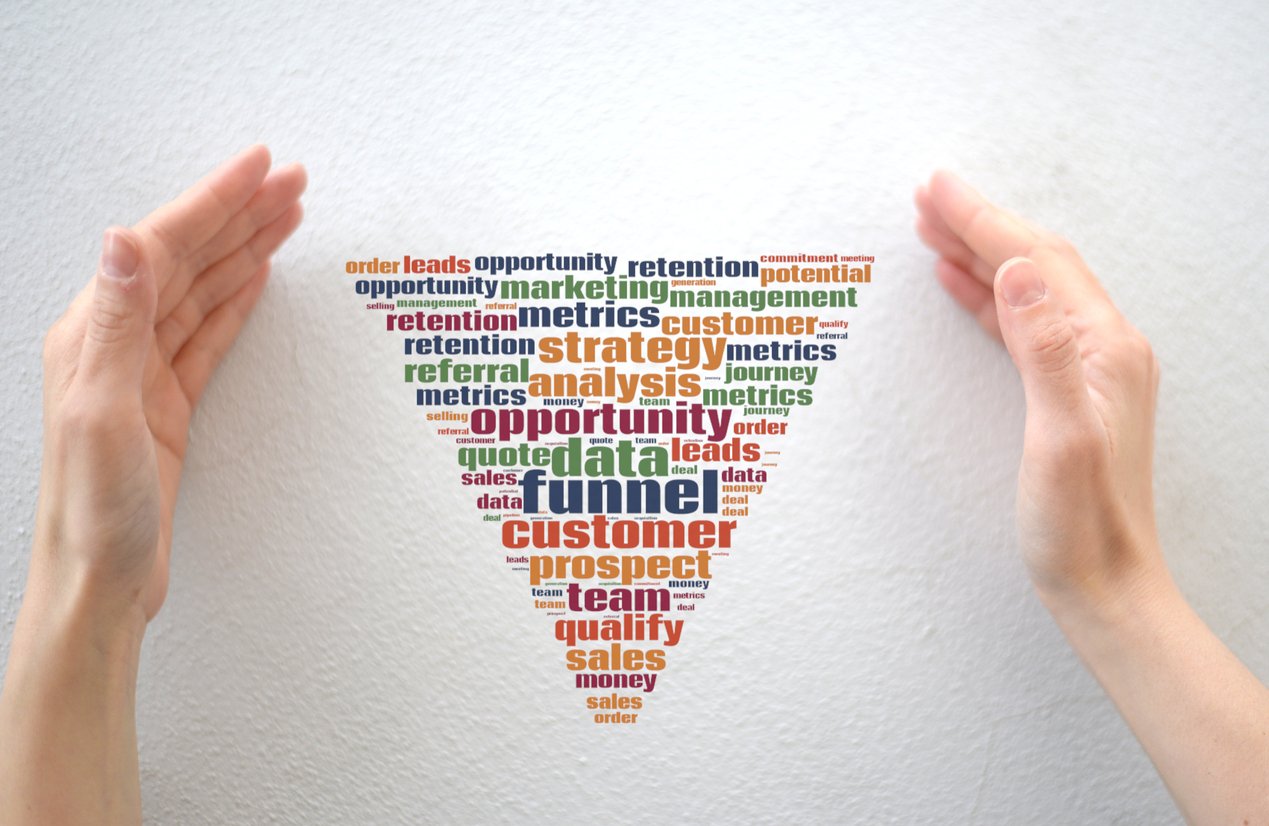
B2B Sales Meaning Explained [Strategies, Examples & More]
 Updated on
Updated on
By Ringy
Table of Contents
Table of Contents
B2B sales is a term that has been around for decades, but with the fast-paced evolution of the business landscape, it has taken on new meaning and relevance. However,
If you are in sales or are interested in pursuing a career in sales, you must understand what B2B sales mean.
Knowing the latest B2B sales trends and strategies to succeed is essential whether you're a seasoned pro or starting.
This article explores the B2B sales meaning and its significance, including the key factors that drive B2B sales success, such as strategies, examples, consulting, channels, pipeline stages, and more.
So, buckle up and get ready to learn what it takes to be a B2B sales expert!
What Does B2B Mean in Sales?

The first step in creating a successful B2B sales strategy is to know the target audience.
That requires understanding the businesses you're selling to, their needs and wants, and what motivates them to purchase. With this information, your approach and messaging can be personalized to resonate better with the customer.
Here are three attributes that'll help you understand what B2B means in sales:
- Transactions Between Businesses - B2B sales transactions involve the sale of goods or services from one company to another. This may include an organization selling products to a distributor, a software business selling to a corporation, or a consultant selling services to an enterprise.
- Focused on Building Relationships - B2B sales often concentrate on building long-term customer relationships. B2B salespeople work closely with clients to recognize their needs and find ways to add value to their businesses.
- Involves Larger Sales Cycles and Contracts - B2B sales typically have larger sales cycles and more complex contracts than B2C sales. This is because B2B sales involve more decision-makers and require a deeper understanding of the customer's organization and needs.
B2B sales transactions play a critical role in the expansion and success of many companies. Understanding the key differences between B2B and B2C sales is essential for businesses looking to succeed in the B2B space.
By building strong relationships, utilizing a well-defined sales process, and leveraging technology and data, organizations can successfully navigate the complexities of B2B sales and drive growth.
Sales B2B Strategies
So, you've learned the B2B sales meaning, but now what? How do you go about making a successful B2B sale?
Don't worry because there are several effective B2B sales strategies.
Robust B2B sales strategies are crucial for businesses to increase revenue and succeed in a competitive marketplace. B2B sales can be complex and require a deep understanding of the customer's business, industry, and unique needs to close the deal.
Understanding the Target Market
The first step in a B2B sales strategy is comprehending clients' needs. Research to identify the target market and its pain points to tailor content that aligns with customer expectations. B2B salespeople should also take the time to learn about the customer's competition and budget.
With this information, teams can customize their messaging and sales approach to meet customers where they are.
A few key considerations when understanding a target market include but are not limited to:
- Industry Trends - Understanding the current trends and challenges in your target market's industry can help you position products or services to address these factors.
- Competitor Analysis - Analyzing your competitors helps you understand the market landscape and identify opportunities to differentiate yourself.
- Customer Segmentation - Segmenting the target audience into different groups based on their needs and buying habits assists in tailoring the sales approach to meet the specific requirements of each segment.
Full cognizance of the target audience allows businesses to ensure they meet the needs of their customers and prospects, ultimately building a more substantial brand reputation.
Personalizing Marketing Approach
In B2B sales, personalization is vital. Businesses don't just want to feel like a number; they want to feel like a valued partner.
Personalizing your marketing approach by addressing each company's unique needs aids in building trust and establishing a long-lasting relationship.
Here are some ways to personalize your B2B sales approach:
- Get to Know the Audience - Before marketing to a business, it's crucial to have a clear understanding of their needs, goals, and obstacles. The more you know about the target audience, the more personalization can be included in the sales pitch.
- Segment the Audience - Categorizing the target market assists in finding what works best and with which audience.
- Use Targeted Messaging - Once you've segmented your audience, use targeted messaging that speaks directly to their pain points, grabbing their attention and keeping them engaged with your brand.
- Leverage Data - Use data to your advantage and personalize your approach based on the behavior or preferences of each business. For example, you can use this information to send targeted emails and personalized follow-up messages to businesses that have shown an interest in your products or services.
Building Relationships

Building strong relationships is an important aspect of B2B sales. By fostering positive relationships with your clients ensures they remain loyal and continue to do business with you for years to come.
Here are some ways to build strong relationships in B2B sales:
- Listen to Your Clients - Listening to and understanding their needs is the first step in building a strong relationship. You can establish trust and build a strong foundation for a long-lasting partnership by showing interest in their business.
- Communicate Effectively - Effective communication is key to building strong relationships in B2B sales. Ensure you communicate regularly and clearly with your clients to keep them updated on products or services.
- Be Responsive - Responding promptly to your client's requirements and concerns builds trust and shows them that you value their business.
- Offer Excellent Customer Service - Providing superior customer service is another way to build strong relationships with your clients. Whether resolving issues quickly or going above and beyond their expectations, providing excellent customer service helps you stand out from the competition and build a loyal client base.
Developing a Strong Sales Team
A strong sales team is essential for any B2B sales strategy. Your sales team should be knowledgeable about your products or services and be able to communicate the value proposition to the customers effectively.
To develop a strong sales team, consider providing ongoing training and development opportunities.
This table highlights key aspects of developing a strong sales team
|
Component |
Description |
|
Knowledge of products/services |
Sales teams should have a deep understanding of the company's products or services, including their features and benefits, to showcase the advantages to clients effectively. |
|
Communication skills |
Strong communication skills, including listening actively and articulating ideas clearly, are essential for success in B2B sales. |
|
Customer-focused approach |
Sales teams must have customer-centricity, seeking to understand the client's needs and tailor their sales approach to meet those criteria. |
|
Relationship-building skills |
Building solid and lasting relationships with customers are key in B2B sales. Team members should be able to establish trust, communicate effectively, and offer excellent customer service |
|
Sales training and development |
Ongoing sales training and development opportunities help sales employees improve their skills and increase their effectiveness |
|
Tools and resources |
Providing sales teams with the tools and resources they need to be successful, such as access to customer data, sales automation software, and marketing materials can maximize their performance |
Including access to customer data, sales automation software, and marketing materials can benefit sales teams immensely. With the right resources and software, sales staff can deliver the expected customer experience.
Offering Solutions
B2B salespeople should focus on offering solutions to their customers' problems. This requires awareness of the client's demands and the ability to offer a customized solution that meets their requirements.
To offer practical solutions, consider the following:
- Research to Understand the Customer's Needs - Before offering a solution, take the time to understand everything about the client. This information helps you tailor your solution to meet their specific needs.
- Offer Customized Solutions - B2B sales require a personalized approach. Offer customized solutions that meet each customer's needs rather than a one-size-fits-all approach.
- Demonstrate Your Solution's Value - Communicate the product or service's worth, including how it addresses the customer's pain points and meets their particular requirements. Use data and case studies to support your value proposition.
Offering solutions to prospect problems is a crucial component of B2B sales. By understanding the customer's needs and offering a customized solution, salespeople can effectively address the client's pain points and increase the likelihood of a successful sale.
Providing Excellent Customer Service
B2B sales require a high level of customer service. B2B salespeople must be responsive, knowledgeable, and professional. They should be able to answer questions, address concerns, and support their customers.
To provide excellent customer service, consider the following:
- Be Responsive - Respond promptly to customer inquiries and concerns to show that you care about their input.
- Offer Knowledge and Expertise - Sales teams should be knowledgeable about products or services and be able to answer questions and support customers.
- Maintain a Professional Demeanor - Agents must maintain a professional demeanor, even in challenging situations, to build customer trust and credibility.
- Continuously Evaluate and Enhance - Keep an eye on your customer service standard and adjust as necessary. Maintain a strong brand reputation and stay one step ahead of the competition by putting forth a consistent effort to improve.
Outstanding customer service is a crucial component of B2B sales. Salespeople may boost income and succeed in the cutthroat B2B space by being attentive, informed, and professional with their clients and ensuring they are happy with their goods and services.
B2B Sales Examples

Wholesale Distribution
Wholesale distribution is a common form of B2B sales, where a distributor buys products from a manufacturer and sells them to retailers. The distributor acts as a middleman, providing a convenient way for retailers to access the products they need without having to deal directly with the manufacturer.
Both the manufacturer and the store benefit from these B2B sales. The retailer can access a wider selection of goods, saving time and money, while the manufacturer enhances sales and reaches a more diverse market.
Manufacturing
B2B transactions, such as selling components to repair facilities or other manufacturers, are common in the manufacturing industry.
For instance, a car manufacturer might offer auto parts to a repair facility. The service center then utilizes the spares to repair customers' automobiles.
Repair shops can access high-quality parts and offer superior customer care thanks to this type of B2B sales.
Technology
Software companies also engage in B2B sales, offering other businesses a wide range of products and services.
For example, a technology organization may sell enterprise resource planning (ERP) software, customer relationship management (CRM) software, and other business software solutions to other companies.
Through B2B sales like this, enterprises can strengthen their operations, simplify procedures, and boost productivity and profitability.
B2B Sales Consulting

Regarding B2B sales, the competition is challenging, and the pressure to meet targets is high. A B2B sales consultant assists businesses in overcoming these difficulties and improving their sales process. They provide expertise, experience, and an outside perspective that helps identify growth opportunities and new sales approaches.
The table below highlights the difference between B2B and B2C sales consulting:
|
B2B Sales Consulting |
B2C Sales Consulting |
|
Focuses on sales strategies for businesses selling to other businesses. |
Concentrates on sales strategies for organizations selling directly to consumers. |
|
Complex and lengthy sales cycles. |
Shorter and less complicated sales cycles. |
|
Deals with multiple decision-makers within a company. |
Deals with individual consumers as the primary decision-makers. |
|
Highlights how the product or service will help the business as a whole. |
Emphasizes the personal benefits of the product or service to the consumer. |
|
Offers solutions to meet the specific needs of each business. |
Provides products and services that appeal to the emotions and desires of the consumer. |
|
May necessitate a more profound comprehension of a specific market or sector. |
Requires knowledge of consumer behavior and shopping preferences. |
A B2B sales consultant will analyze the current sales process, identify areas for improvement, and make recommendations to help optimize selling approaches. They can help businesses establish a sales strategy, create a sales plan, and develop sales materials. B2B sales consultants train sales teams, provide ongoing support and mentorship, and monitor progress to ensure success.
The role of a B2B sales consultant is to help companies achieve their sales goals by providing expert advice and guidance. They work with the sales team to implement the sales strategy, train salespeople, and analyze progression. These individuals provide regular feedback and support the sales team in overcoming obstacles and achieving their targets.
B2B Sales Channel

B2B sales channels refer to businesses' communication mediums to reach potential customers. A sales channel can be direct, such as a salesperson visiting a customer, or indirect, such as an online marketplace or a distribution network.
The right sales channel for a company depends on many factors, including the type of product or service, the target market, and the sales goals.
Direct sales channels are personal and require a lot of time and effort from salespeople. They often involve face-to-face interactions and personal relationships with customers. Indirect sales channels are more impersonal but reach a larger audience and can be less time-consuming for sales teams.
Common B2B sales channels include:
- Direct Sales
- Indirect Sales
- Online Marketplaces
- Distribution Networks
- Trade Shows and Conferences
- Referral Programs
- Telemarketing
- Email Marketing
- Social Media
Choosing the right sales channel is critical for success in B2B sales. It aids businesses in reaching their target market effectively while reducing costs and improving customer engagement.
B2B Sales Pipeline Stages

The B2B sales pipeline refers to the stages a potential customer goes through, from initial contact to purchasing a product or service. Understanding the B2B sales pipeline is critical for effective sales management because it helps sales teams prioritize their activities and focus on the most promising opportunities.
Prospecting
The first stage of the B2B sales pipeline is prospecting. Here salespeople identify potential clients and reach out to gauge their interest in the product or service offered.
During this stage, the salesperson's objective is to find potential customers who fit the target market profile and are most likely interested in the solution offered. This process involves research, cold-calling, emailing, and leveraging social media to reach potential prospects.
Qualifying
The second stage of the B2B sales pipeline is qualifying. In this stage, the salesperson determines whether the prospect is a good fit for the product or service. Asking the right questions and gathering information about the prospect's needs, budget, and decision-making process can help determine their eligibility for qualification.
Qualifying is critical to the sales process as it helps the salesperson determine whether the prospect is worth pursuing and whether the offered product or service matches their needs.
Demonstrating
The third stage of the B2B sales pipeline is demonstrating.
At this point, the salesperson introduces the product to the prospect while emphasizing its advantages and demonstrating how it can suit their needs.
For the prospect to understand the value of the supplied goods or services, the sales agent tries to inform them and earn their trust.
Presentations, case studies, and product demos are typical during this stage.
Negotiating
The fourth stage of the B2B sales pipeline is negotiating. In this phase, the salesman and the potential customer negotiate the terms of the agreement and settle on the purchase price, the timing of delivery, and other essential elements.
Strong negotiating abilities and a thorough knowledge of the given goods or services are needed.
To negotiate a contract that satisfies the interests of both parties, the sales employee must be aware of the prospect's requirements and financial constraints.
Closing
The final stage of the B2B sales pipeline is closing.
During this step, the salesperson closes the deal, and the prospect becomes a client.
The closing process is crucial since it calls for the sales agent to be assured, assertive, and capable of handling objections.
It frequently takes several encounters with the prospect and a thorough knowledge of the given product to close a B2B sale.
B2B Sales Meaning - FAQs

What Is the Purpose of B2B Sales?
The purpose of B2B sales is to establish long-lasting partnerships between businesses and to provide a mutual exchange of goods or services that benefit both parties. B2B sales are crucial for companies to grow and succeed by selling to other businesses instead of directly to consumers.
What Is the Difference Between B2B Sales and B2C Sales?
B2B sales refer to sales between businesses, while B2C sales refer to sales between organizations and consumers. B2B sales typically involve larger transactions, longer sales cycles, and more decision-makers involved in the buying process than B2C sales.
What Are Some Common B2B Sales Channels?
Some common B2B sales channels include direct sales, trade shows and events, telemarketing, email marketing, and other digital channels such as search engines and social media. Each channel has its strengths and weaknesses, and the channel choice will depend on the specific needs of the business and its target market.
What Are the Key Success Factors in B2B Sales?
The key success factors in B2B sales include:
- Building solid relationships.
- Understanding the customer's needs.
- Providing value.
- Staying ahead of the competition.
Effective communication, good product knowledge, and a strong sales pipeline are also important for success in B2B sales.
What Is a B2B Sales Pipeline and How Does it Work?
The B2B sales pipeline visually represents a sale's stages from initial contact to close. It helps sales teams track the progress of each opportunity, identify areas for improvement, and prioritize their efforts. A sales pipeline typically consists of stages, such as lead generation, qualification, discovery, proposal, negotiation, and close.
How Can B2B Sales Consulting Help Improve Sales Performance?
B2B sales consulting can help businesses by providing insights, guidance, and support in areas such as sales strategy, sales process, lead generation, pipeline management, and sales training.
By working with a sales consultant, companies can improve their sales performance by identifying areas for improvement and implementing best practices.
B2B Sales Meaning - Final Thoughts

And there you have it, folks! A comprehensive guide to the world of B2B sales. From the definition of B2B sales to different sales strategies, examples, consulting, channels, and pipeline stages. We hope this article has shed some light on the B2B sales meaning, and how you can improve your B2B sales game.
Now, as we end this journey, let us leave you with one final thought: B2B sales is a process, not a one-time event. To succeed in B2B sales, you need to have a plan, be organized, and always be willing to learn and adapt.
And if you're looking for a tool to help streamline your B2B sales process, look no further than Ringy.
The platform is a top-notch sales and customer relationship management software that will keep track of your leads, customers, and sales pipeline all in one place. With its intuitive design and user-friendly interface, Ringy makes your life easier, giving you more time to focus on what matters: making those sales!
So, what are you waiting for? Request a demo and take your B2B sales to the next level!

Skyrocket your sales with the CRM that does it all.
Calling? Check. SMS? Check. Automation and AI? Check. Effortlessly keep in touch with your customers and boost your revenue without limits.

Take your sales to new heights with Ringy.
Sales in a slump? Ringy gives you the tools and flexibility you need to capture leads, engage with them, and turn them into customers.
Subscribe to Our Blog
Enter your email to get the latest updates sent straight to your inbox!
Categories
Related Articles



































































































